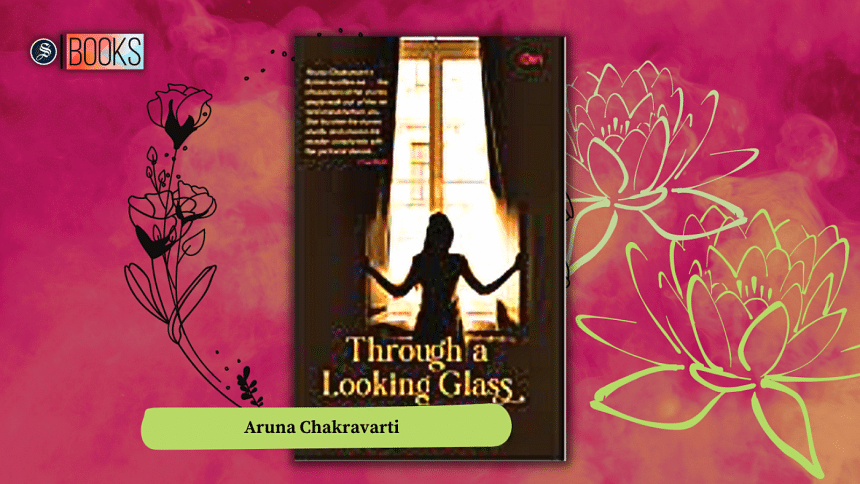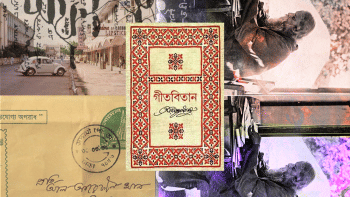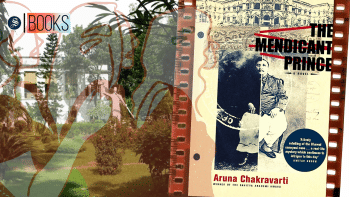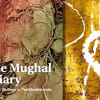When fiction challenges communalism

When the world is broken into "fragments" by what Tagore called "narrow domestic walls", stories that rebel and reflect on the fissures as a perpetration of undesired events emerge from fearless pens. One such bold pen is that of Aruna Chakravarti's. Her latest collection of short stories, Through a Looking Glass (Om Books International, 2022), shares a name with Lewis Carol's 1871 fantasy novel.
The titular story is about Pomo Dasi's nostalgic journey through a looking glass, a journey that shreds castes and creeds to heal the self-esteem of a woman: "Pomo Dasi had vanished. Rajkumari Promoda Sundari, only daughter of Sreel Sreejukta Raja Raghobendra Chandra Rai, 17th in line from the Chandra Rai dynasty of Garh Bishnupur, was sporting with her companions in the royal gardens…" She, a fatherless daughter of a maid in a princely household, found self-esteem perceiving a crucial reflection in her looking glass.
"Second Sight" is the most remarkable story in this collection. Spanning generations, it not only shifts perspectives with ease but also takes up an important issue that rages through large parts of the world—religious divides. Highlighting biases of colonial Christian missionaries and Hindu dogma-ridden families, it seeks resolution. The Scottish grandmother and Anglo-Indian granddaughter of the story share the gift of second sight—and perhaps a quest to find their true identity. On her deathbed, the granddaughter tells her daughter: "…I was born a Christian. I broke faith with Jesus and went astray. But it is never too late to repent and be received into His flock again…Send for a priest as soon as we reach Srirampur. Tell him I seek absolution…And be sure to inscribe my real name, Laura Maiti, on the headstone. Laura Maiti…remember. Not Leela Ghosh."
Conversion forced on Laura the need to convert to Leela by eating cow dung. It is reminiscent of Tagore's Gora (1910) where the protagonist—an Irish orphan, brought up in a Brahmin household—is forced to go through a similar ritual to reclaim his caste after his travels. At this point, one wonders if the author is impacted by Tagore.
Chakravarti came into literary focus with her translation of Tagore songs for which she won the Vaitalik award. Then she wrote the novels Jorasanko (Harper Collins, 2013) and its sequel called Daughters of Jorasanko (HarperCollins India, 2016), both centred on the Tagores. She translated Sunil Gangopadhyay's novels, one of which was on Tagore—the impact is obvious. A Sahitya Akademi award-winning translator, novelist, and an outstanding historic fiction writer—with the last being The Mendicant Prince (Picador, 2022)—Chakravarti exhibits mastery over the art of short stories. She has brought to us narratives spanning the century to showcase movements in history and society that plead reform.
The characterisations in her books are so realistic that one wonders if they are not often drawn from life. For instance, the narrator of "Perceptions" is an established author. Is the story autobiographical? For not only are the characters vivid and real but some seem to be an echo of each other, like Dollymashi from the same story and Chitri from the "Crooked House". "Princess Paulomi", a story that spans the life of the protagonist from a rich spoilt brat to almost a beggar, is also along the same vein, more full-bodied. As a fallen woman, she contrasts with middle class morality—bringing into play religious conversion again, but this time a conversion that is embraced as a masjid and qawwals provide a compassionate home for the outcast ostracised woman and her child. The middle class shuts the door on the face of an inconvenient woman, condemning her as depraved.
Depravity versus morality is brought into play again in the stories with a modern backdrop: "Accident", "Satwant Chachi", and "Mobile Mataji"—a narrative about a woman who connects to God on her mobile, lusts and even endorses killing to lure followers. The story could well be seen as horrific. And yet, it is the story of everyday life, of uneducated peasantry, of blind beliefs that thrive despite the sub-continent's technological advancements.
A thread of compassion runs through the narratives beading them into a garland of unforgettable stories as they travel across borders of colonial Scotland to the heart of villages in South Asia. The stories surprise and compel one to read on. When one finishes the collection, there is a sense of yearning to be with the characters for some more time. The flavour lingers and you long for more stories from the author's pen.
Mitali Chakravarty is the founder-editor of Borderless Journal, which has just published its first hardcopy anthology, Monalisa No Longer Smiles: An Anthology of Writings from across the World.

 For all latest news, follow The Daily Star's Google News channel.
For all latest news, follow The Daily Star's Google News channel. 







Comments